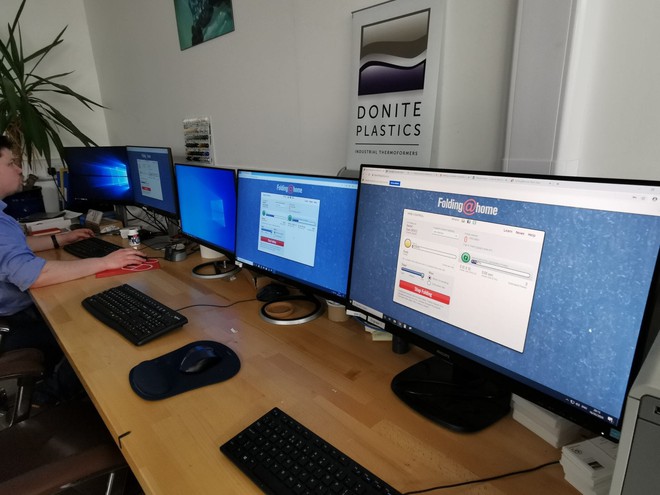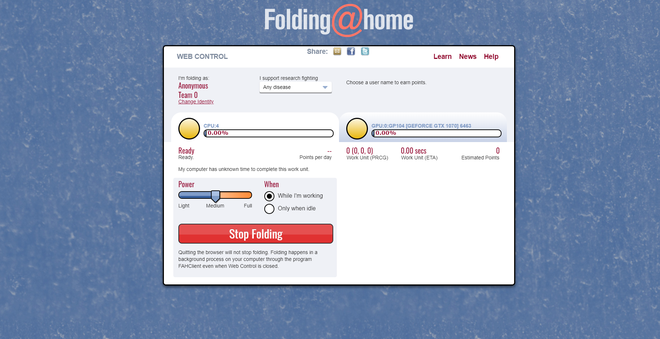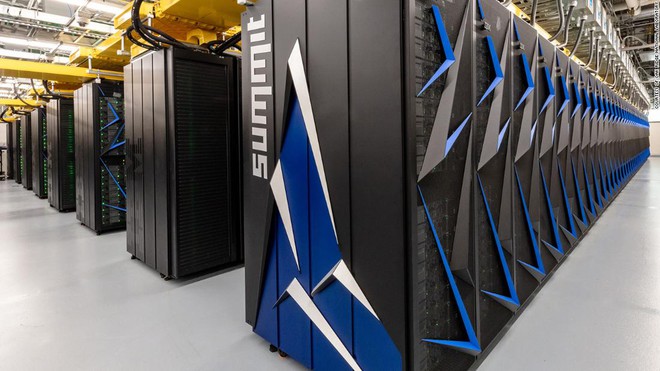Project ‘borrowed’ PC gamers to find a cure for COVID-19 with double the fastest computing performance in the world
- Tram Ho
Started by the prestigious Stanford University (USA) since 2001, Folding @ home is one of the largest allocation calculation projects in the world. The main objective of the project is to study the twisting and forming of proteins, from which finding a cure for incurable diseases such as cancer, Alzheimer’s.
Typically, researchers will need a supercomputer to perform simulations and calculate the activity of proteins. However, the cost to buy and operate a supercomputer is huge. Therefore, Folding @ home decided to combine the power of many computers connected via the internet (also known as parallel processing) in the form of a distributed system . The more people join, the more powerful computing power of this distributed network.
As the COVID-19 epidemic is spreading rapidly around the globe, the Folding @ home project has recently announced its participation in a race to learn about the new virus. To accomplish this goal, Folding @ Home urged PC users for this project to ‘borrow’ computer resources to assist in researching and learning about the SARS-CoV-2 virus that is spreading worldwide. bridge.

. The pieces of data that need to be decoded will be processed by the CPU or GPU on the user’s computer and sent back to the Folding @ home database.
Folding @ Home’s call for help immediately received a standing ovation. This project recorded growth in the number of users up to 1200%. According to statistics, nearly half a million PC users have participated in the Folding @ Home project over the past two weeks (compared to the previous 30,000 members), many of whom are plowing. Bitcoin has also ‘fought’.
With such a large number of users, Folding @ home now has the ability to achieve extremely distributed computing performance, up to 470 petaFLOPS, equivalent to the power of 27.4 million CPU / GPU combined. again. By comparison, the computational performance of the world’s 7 most powerful supercomputers is still not as fast as Folding @ home’s, according to Tomshardware.

FAH software interface created by scientists of Folding @ home project
Even, the computing power of Folding @ home is 2 times faster than Summit – the world’s most powerful supercomputer with 149 PetaFLOPS computing performance, equipped with 220800 CPU cores, 188416000 CUDA cores, 9.2PB RAM , and about 250PB of storage. Last week, US scientists used the supercomputer to find 77 compounds that could be useful in treating COVID-19 patients in just a few days.

The computing power of Folding @ home is 2 times faster than Summit, the world’s most powerful supercomputer
Technology experts assess that the increasing participation in the Folding @ Home project has opened up a new hope for the world, in the context that we have not yet studied a specific vaccine against SARS-CoV-2 virus again. Naturally, if you own a well-configured PC, Vietnamese technology users can also contribute to the Folding @ Home project.
Accordingly, users only need to download the name FAH, created by scientists of the Folding @ home project. The data fragments to be decoded will be broken down and sent via the Internet to the project participants’ computers via this software. The data will then be analyzed, processed by the CPU or GPU on the user’s computer, and the results will be sent back to the Folding @ home database.
Nguồn bài viết : Genk
